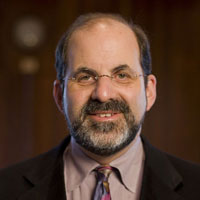

Thursday, 7th June 2018
14:00 - 15:00
Clay Room - Nuffield College
Social and Political Psychology Experiments Under the Microscope: Do Our Classic Experiments Replicate When Participants Are Representative of the General Public Rather Than Convenience Samples of College Students?
Since David Sears’s provocative article in JPSP in the late 1980s about social psychology’s nearly exclusive reliance on American college sophomores as our research participants, the field has become increasingly interested in studying social phenomena outside of that group. Recent years have seen growing interest in the impact of culture (studied via comparisons of people across nations and across regions within a nation), the impact of aging (studied via comparisons of young adults, middle-age adults, and the elderly), and more. But it continues to be much more practical for social and political psychologists to rely on nearly cost-free laboratory studies of college students or inexpensive MTurk participants than to attempt to collect data from representative samples of adults. This talk will explore whether this approach compromises theory-building in social and political psychology. In the context of national surveys of representative samples of thousands of American adults, a series of classic and highly-cited experiments were repeated to assess the generalizability of the lab-based and MTurk results that fill our introductory textbooks and to gauge whether our widely-accepted effects appear across a range of population subgroups differing in age, educational experience, race, region of residence, and other factors. Topics of the studies include attitude processes (e.g., persuasion and predictions of the ELM), social cognition (e.g., heuristics and biases in social judgment, the fundamental attribution error, the false consensus effect, self-perception effects), and more. In every case, the limits of generalizability are quite striking and remarkably consistent across experiments.